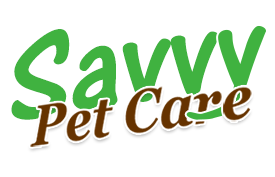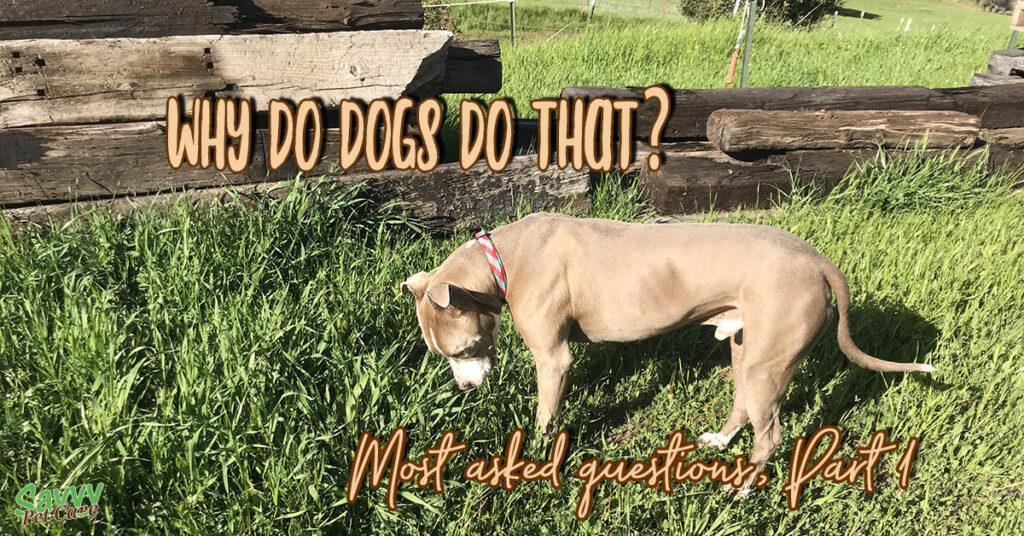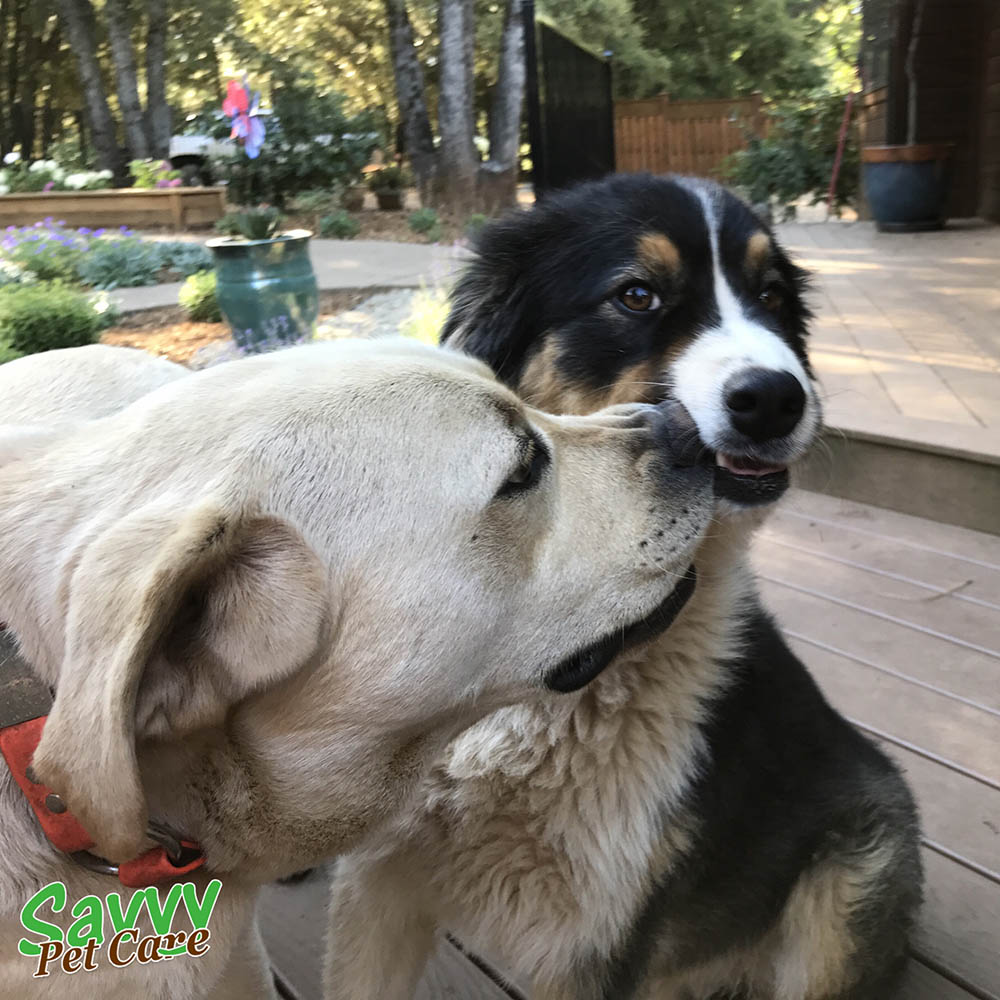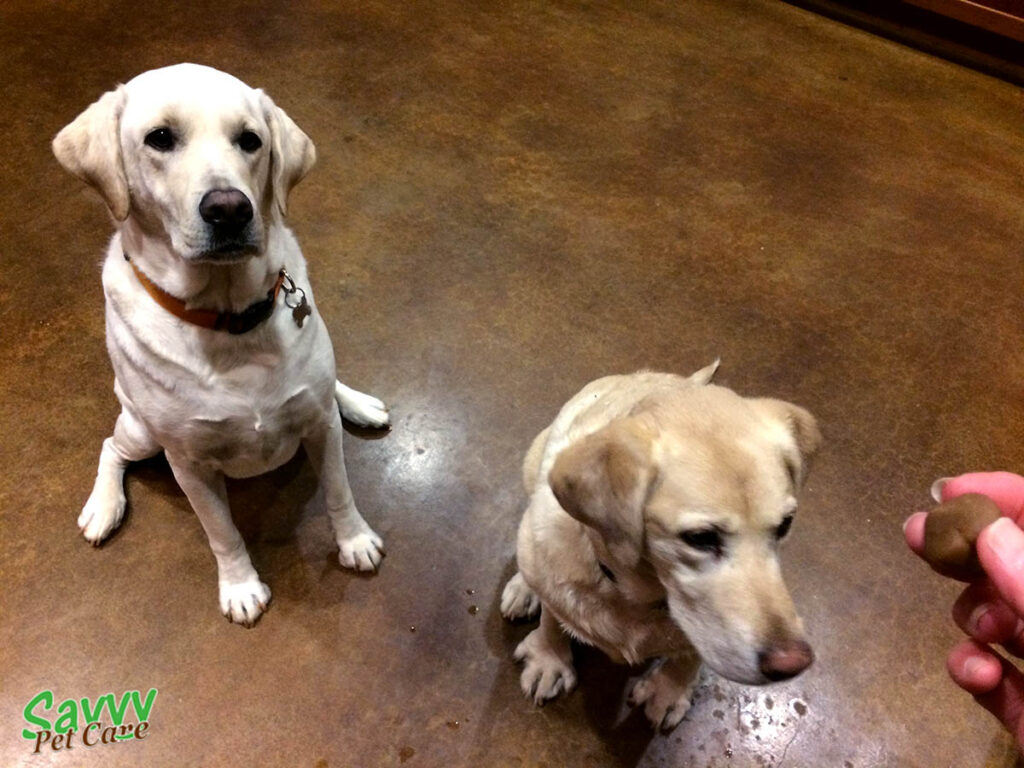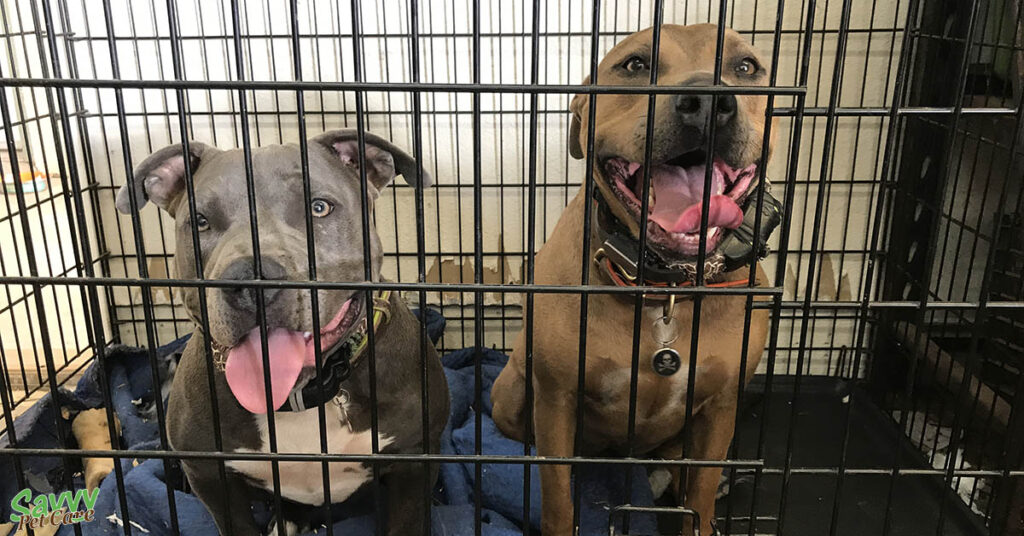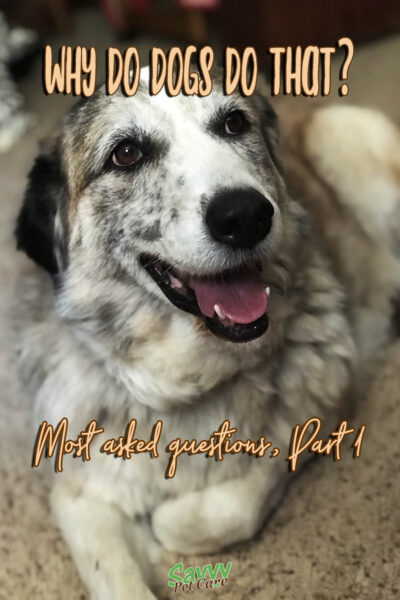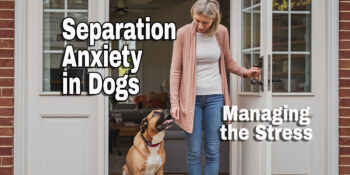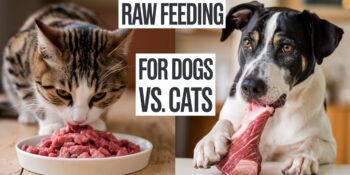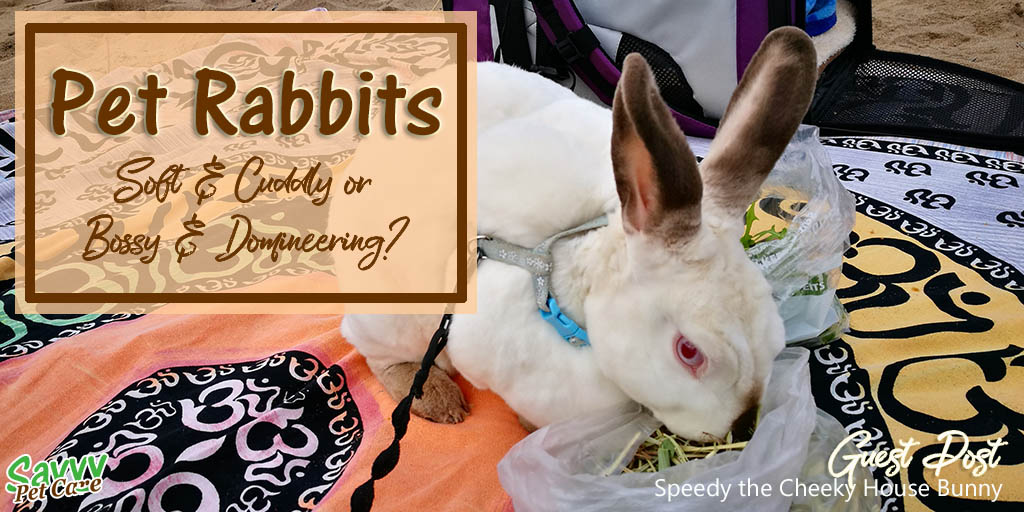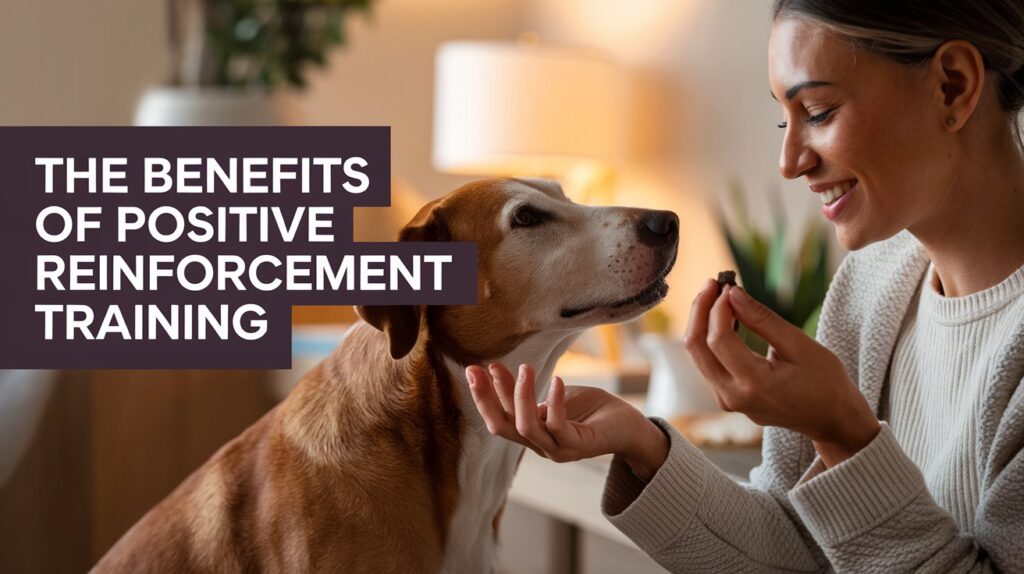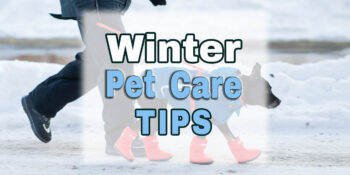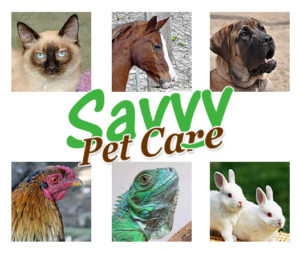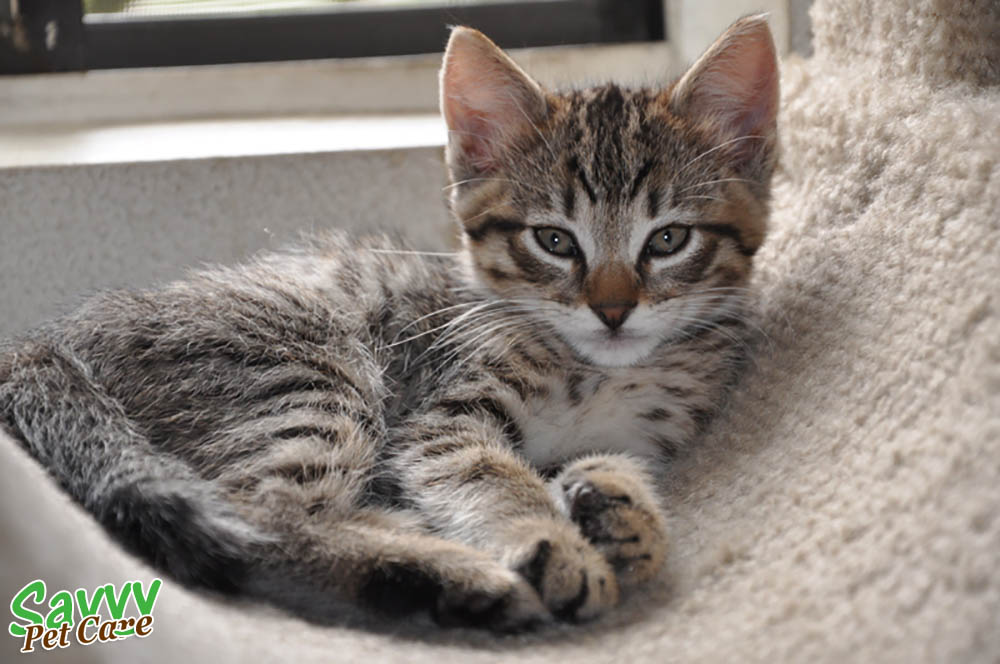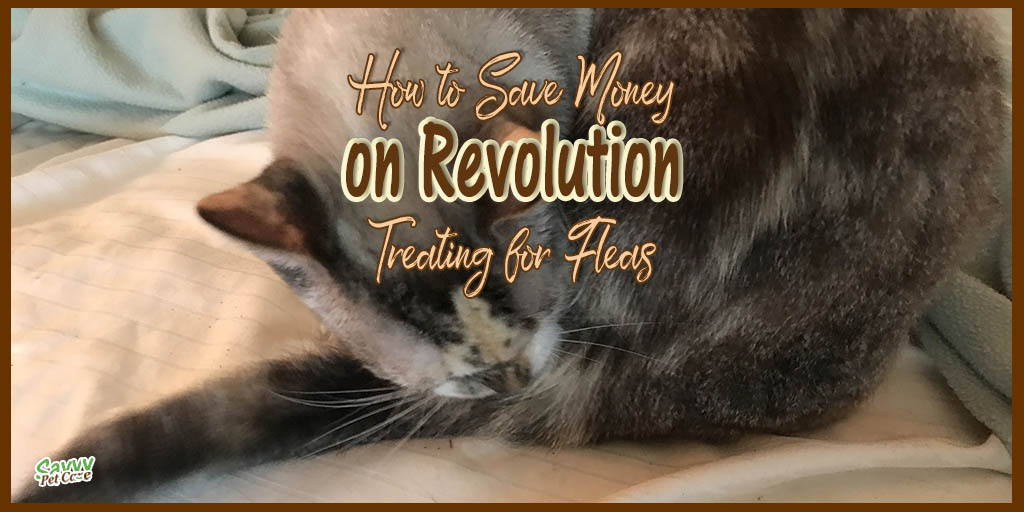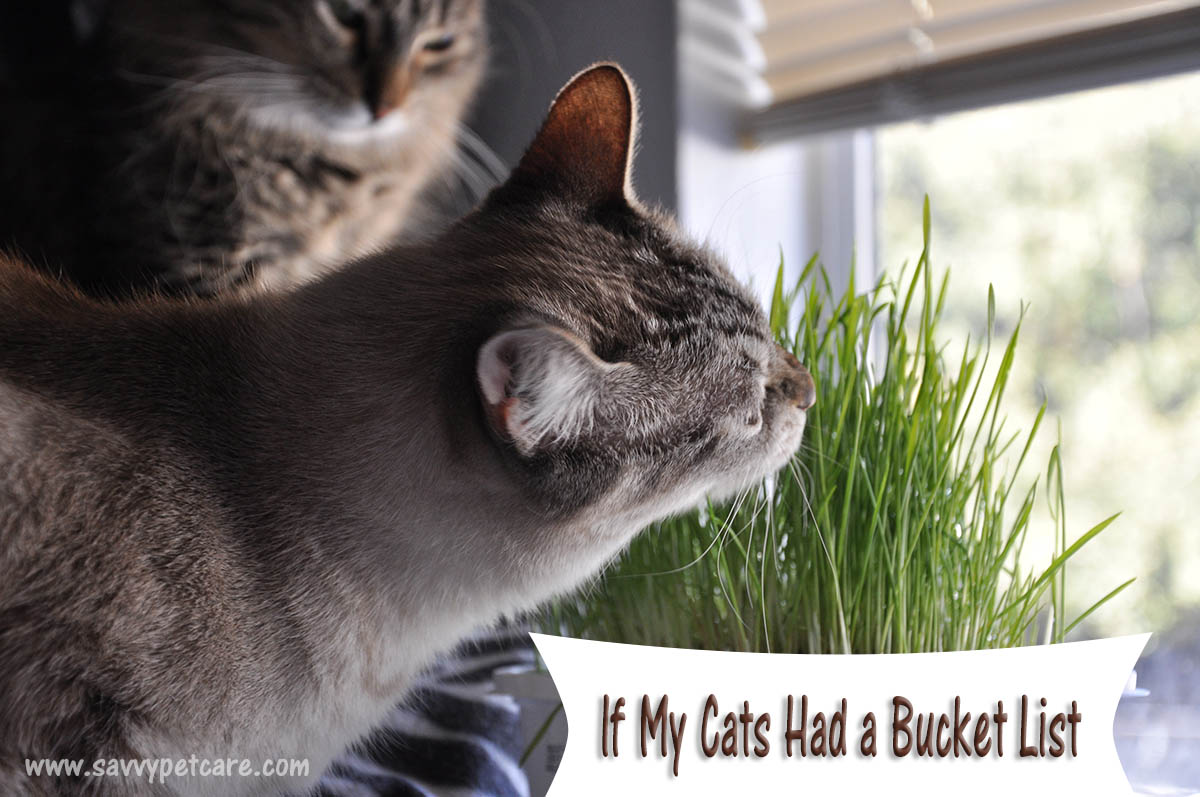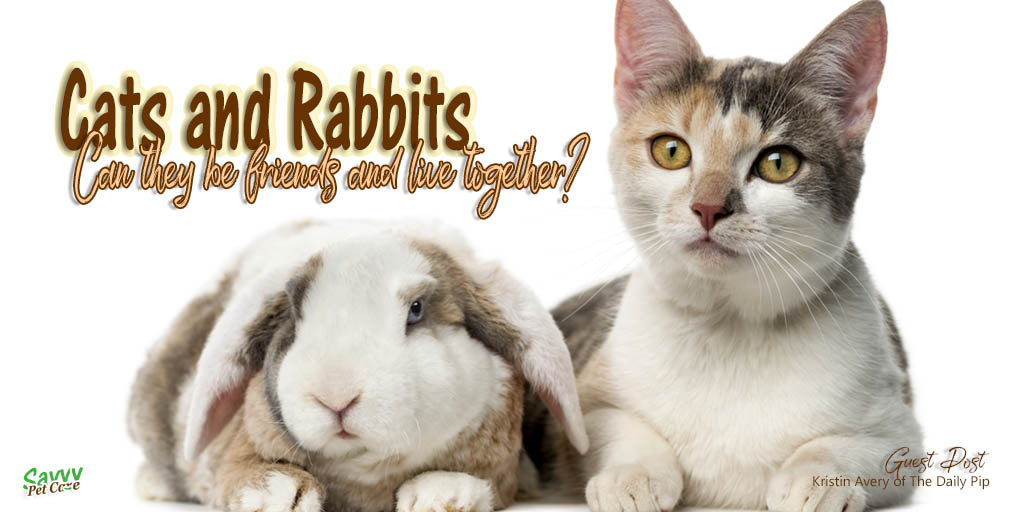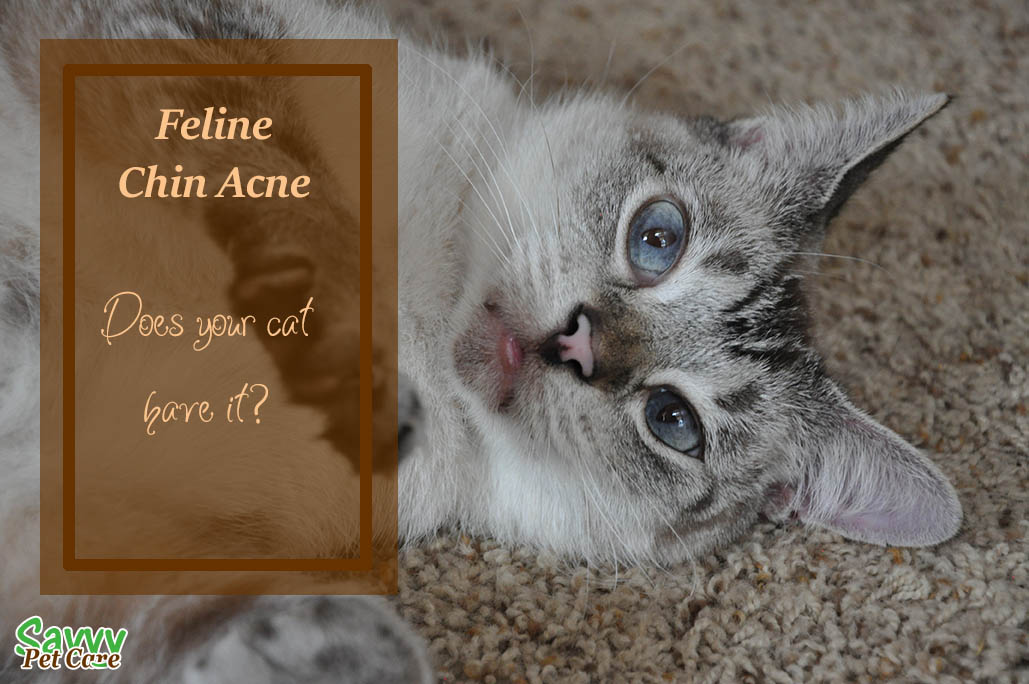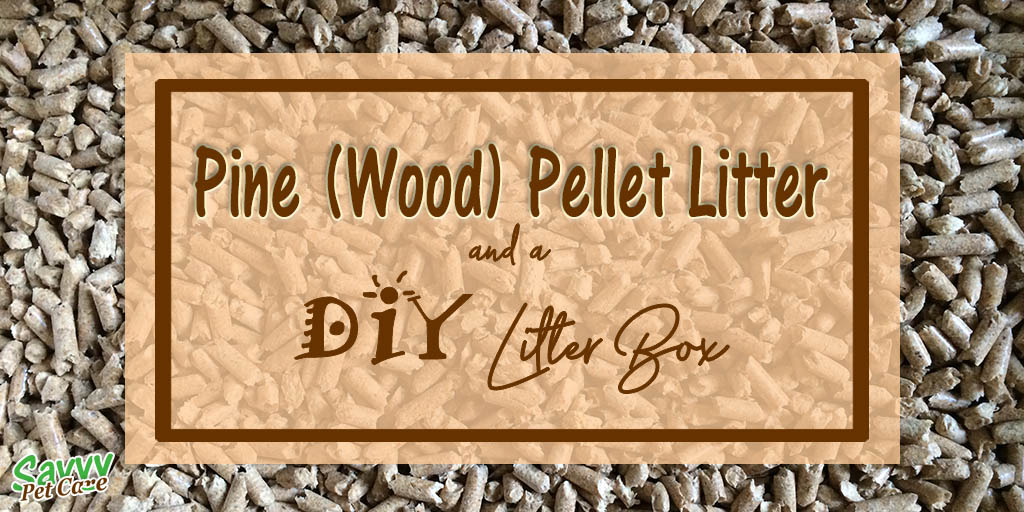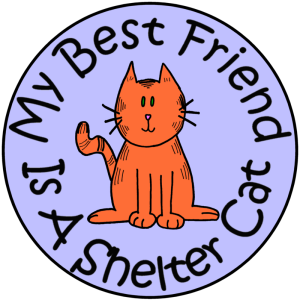For the past several months in the newsletter, I’ve been exploring the top questions people search for about dogs. Here are the top 10 questions people have:
Why do dogs…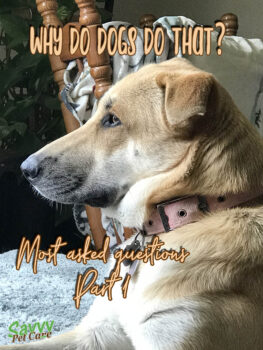
- Lick
- Eat grass
- Eat poop
- Howl
- Hump
- Smell
- Bark
- Shake
- Scratch
- Bite
Here’s a recap of the five “Why Dogs do That” that I’ve covered so far. Be sure to sign up for the newsletter to find out about the last five.
Why do dogs do the things they do?
Keep in mind that, since dogs can’t tell us what they are thinking, anything not backed by research is just conjecture.
Why do dogs do the things that they do? Check out 5 of the top 10 most asked questions about dog behavior. Share on XWhy do dogs lick?
Dogs lick a lot of things! They lick objects, themselves and us. When our dog licks us, we think it is a sign of affection, and maybe it is. However, licking started out as a food-seeking behavior. Research shows that the puppies of wild canids lick the face of their mother when she returns from hunting in order to get her to regurgitate food for them.
Licking objects might be their way of seeing what things taste or feel like. This is especially true for puppies who seem to put everything in their mouths.
Dogs might lick themselves because something is itchy or ouchie or they might just be grooming. Excessive licking could be a sign of allergies, pain, stress, boredom or even cognitive issues.
Why do they eat grass?
Some folks, even vets, think they know why dogs eat grass. Your vet may have even told you your dog eats grass to settle his stomach. The fact is, there is no scientific evidence to support that theory and we just don’t know the answer.
The theories around why dogs eat grass are pretty much the same as why cats eat grass.
Here are some of the claims for why your dog may eat grass.
- Indeed, it may be to settle his stomach.
- It may be out of boredom.
- He may have a nutritional deficiency.
- He may need more fiber.
- Your dog may just like the taste.
- He may be ridding themselves of parasites.
- He may be genetically hard-wired to do it.
Whatever the reason, there is not enough research or scientific evidence to support any of the claims.
Most experts agree that eating grass is not harmful, even if not especially beneficial. Just be sure the grass your dog eats is free of pesticides and herbicides. This is tough to do in public places so be vigilant when walking your dog.
Why do dogs eat poop?
Here are some possible reasons your dog is eating poop.
- When raising a litter, mother dogs will eat the feces of the puppies to clean up the den and may not stop doing this after the puppies leave.
- They may like the taste, especially if it contains undigested food.
- Dogs seem to especially like cat feces and this may be due to the higher protein content food that cats eat.
- Dogs who are food driven may do it to make sure they get enough to eat.
- If dogs are punished for pooping in the wrong place, they may eat it to “hide the evidence,” avoiding anxiety.
- Stool eating may be a negative attention-seeking behavior if you react strongly when you see them do it.
- It may be out of boredom.
- They may have learned the behavior from other dogs.
This may seem like a truly gross behavior to you, but it may not be as unhealthy as you think. As long as the stool producer is healthy, free of parasites and eats a good diet, he is unlikely to pass anything on to the stool eater. Remember, your dog’s saliva will naturally break down germs and remove them from the mouth. Eating outdoor feces from unknown dogs or other animals presents a whole different issue and should be avoided.
Here are some steps you can take to help alleviate the behavior.
- It should go without saying, but the number 1 consideration should be to feed your dog a high-quality food.
- Dogs prefer fresh feces so clean up your yard right away.
- Use positive reinforcement training to teach commands like “leave it.”
- Make sure your dog gets plenty of exercise and mental enrichment.
Why do dogs howl?
You are probably thinking, like me, that it’s just what they do. They are descended from wolves, after all. But let’s dig a little deeper into why wolves howl and is it just heredity that makes dogs do it.
Here are some possible reasons your dog howls.
- The most obvious reason is communication. Wolves howl to communicate with pack members over long distances. Are dogs howling to communicate with family members who are not at home? Dogs who generally howl the most are dogs that are less removed from their wolf ancestors – northern breeds like huskies and malamutes.
- Howling is a pack animal behavior and is thought to be a form of bonding with group members. Sirens and the like trigger the instinct for many dogs but they probably don’t think that the sirens are another pack.
- Since howls travel over long distances, dogs may howl to call for help if injured, trapped or frightened.
- Your dog may just be seeking your attention if he learns that this behavior gets a response from you.
- Dogs may howl to claim territory, like marking their territory.
If your dog’s howling is excessive, make sure the cause isn’t separation anxiety. This usually happens when dogs are left alone for long periods of time. It is often accompanied by other behaviors such as pacing, depression, destruction, or elimination.
Why do dogs hump?
The reasons dogs hump might surprise you. Your first thought is probably that it is sexual but, although mounting is a sexual position for dogs, canine behavior specialists believe there are other reasons for the behavior.
Here are some possible reasons your dog humps.
- Humping is usually sexual in nature in dogs under one year old who have not been spayed or neutered.
- The main reason older dogs perform this behavior is to exert dominance.
- It is a common play behavior with both males and females.
- It can be in response to something that has excited the dog, like strangers arriving.
- Your dog could be stressed, over-stimulated or just plain acting out to get your attention.
- Occasionally, it could be a sign of a medical condition like infection or irritation.
Although brief moments of humping during play is pretty normal, some dogs don’t like to be mounted. Therefore, if you take your dog to a dog park where they interact with other dogs, it is especially important to discourage this behavior. “It’s a play behavior dogs do because no one has told them it is not acceptable behavior.” Gary Landsberg, DVM.
Should I take my dog to the vet?
If you feel that any of these behaviors are excessive or a change in behavior, a vet visit will help you rule out illness or injury. Once that’s done, the ball is in your court. Stopping unwanted behavior is a matter of training and patient perseverance.
Stopping unwanted behavior is a matter of training and patient perseverance. Share on XHow to stop unwanted behavior
It is best to start preventing any unwanted behavior early. Determine if there are any stressors in the home and make sure your dog is getting enough exercise.
The best way to prevent these unwelcome behaviors is to redirect your dog’s attention. If the dog is trained in simple commands, you can redirect with things like asking the dog to sit or lie down. Positive reinforcement when the task is successfully performed helps the dog understand the undesirable behavior is not wanted or rewarded.
Redirect with simple commands and positive reinforcement. Share on XYou can also redirect with a game of fetch or a walk or run outdoors.
If redirecting is not effective, simply remove the dog from the situation to his crate or another room.
Do you have a question about dog behavior? Let me know in the comments and I’ll answer it in a future newsletter. Be sure to sign up today!
Pin it and Save for Later




